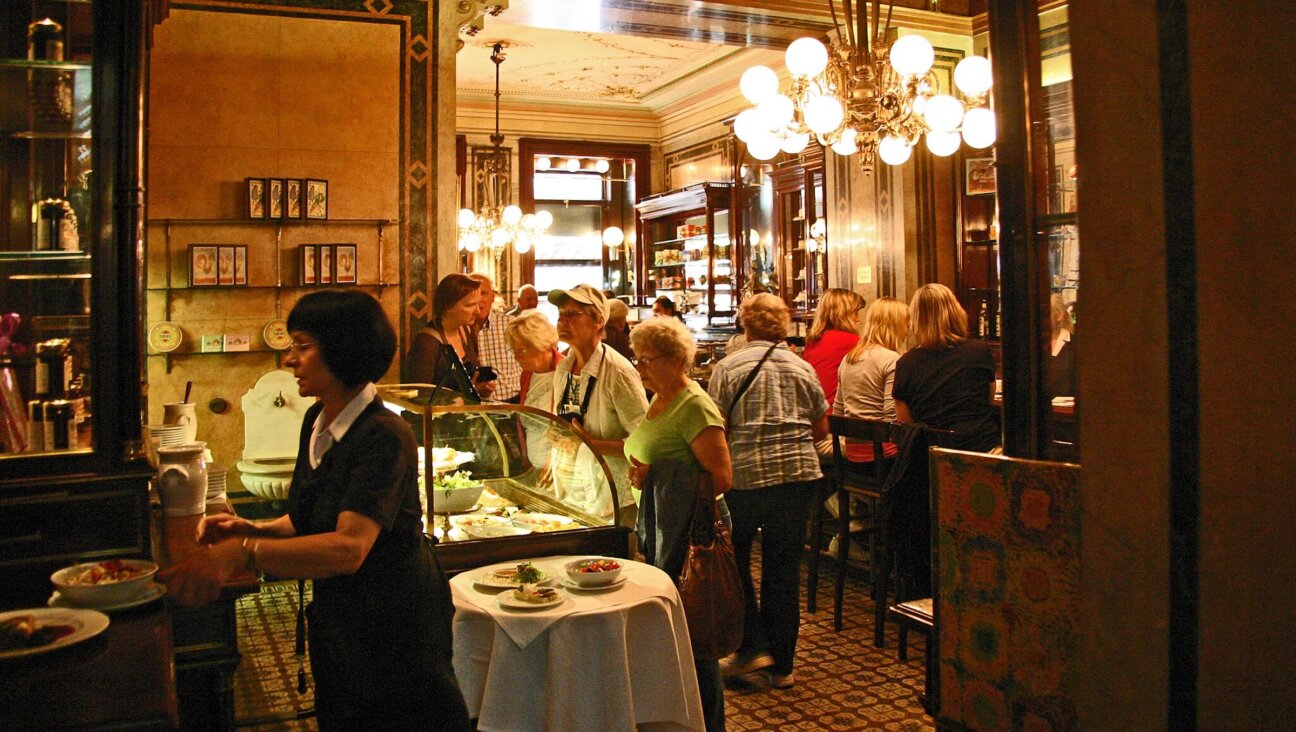The CSA Psolet Challenge

Image by courtesy of Shuli Passow
Each day I go to breakfast
Put oatmeal in my bowl
Fill up my glass with O.J.
Eat half my jelly roll
I can’t believe I took more than I ate
That’s why I have so much psolet on my plate…
Some readers of this blog may recognize these words as the lyrics to the Psolet Song, sung at mealtimes at the Teva Learning Alliance as part of an effort to teach students about the Jewish injunction of bal tashchit, not wasting. This mitzvah comes to us from the book of Deuteronomy:
“When you besiege a city for many days to wage war against it to capture it, you shall not destroy [lo tashchit] its trees by wielding an ax against them, for you may eat from them, but you shall not cut them down. Is the tree of the field a man, to go into the siege before you?” (Deuteronomy 20:19)
Rabbis of the Talmud, medieval Jewish legal thinkers, and contemporary rabbinic authorities have all understood this prohibition as far more expansive than the biblical context suggests, and conclude that it is actually meant to prohibit all kinds of behavior, from burning fuel excessively to destroying housewares to wasting water. (For an excellent overview of bal tashchit that discusses many interpretations of what this mitzvah includes, check out the Green Zionist Alliance’s article). At Teva, the focus of the “Psolet Song” is how the mitzvah of bal tashchit applies to our food consumption, and the song encourages students to minimize waste by taking only what they think they will eat during a given meal. Any food waste—psolet—left over on their plates gets collectively weighed after the meal, and students are challenged to reduce the amount of psolet the group produces during the course of their time at Teva.
These days, personal portion control is less of a problem for me than it was when I was as a kid, and I tend not to end my meals with much “psolet on my plate.” But I do find myself challenged by bal tashchit in the kitchen: too often, my good intentions in the grocery store devolve into rotting produce in the fridge—which in turn ends up in the garbage. Psolet in my fridge is a particular problem with the veggies that arrive each week in my CSA share. I have only so much culinary creativity when it comes to using up yet another kohlrabi, or doing something more than a garlicky saute with yet another bunch of kale. Sometimes, I don’t end up eating at home much for a few days after my share arrives—and the lettuce that looked fresh and delicious on Tuesday is a wilted mess by Friday.
Throwing this produce in the garbage undermines the reasons why I joined a CSA in the first place—namely, to be more environmentally responsible and conscientious about the way I eat—so it seems particularly unfortunate when it happens. So this summer, I decided to issue myself the Psolet CSA Challenge, an effort to use every bit of produce that comes in my CSA share each week.
For the next several weeks, I’ll hold myself accountable by writing about this experiment here, sharing exactly what I do with all the produce, and how much (if any!) I end up throwing away. I’m planning to push myself to new places in the kitchen, with techniques I’ve never really mastered such as pickling and pesto, and finding ways to use things like beet or turnip greens, which in the past I would automatically discard. Perhaps I’ll even end up making one of the oddest recipes I ever came across in a cookbook: summer lettuce soup.
Here is a parve/dairy-free lettuce soup. To make this as a cold ‘cream of lettuce’ soup, omit the potato, discard half of the cooking water after simmering the lettuce, blend the remaining liquid with the vegetables, then stir in 1 cup milk and 2/3 cups yogurt or sour cream along with the lemon juice. Refrigerate the soup for at least an hour before serving and serve cold the same day you make it.
2 tablespoons olive or canola oil
2 medium onions, diced
3-4 cloves garlic, minced
3 cups water or stock
2 potatoes of any variety, peeled and cubed (any kind)
8 cups lettuce, coarsely chopped
¼ mixed fresh herbs, chopped (chives, tarragon, dill, oregano, basil are all great options)
juice of half lemon
salt and pepper to taste
Heat the oil in a soup pot. Add the onions and garlic and sauté over medium heat until lightly browned. Add herbs and sauté for another 3 minutes. Add the water, potato and lettuce. Bring to a simmer, cover, and then simmer gently for 20 minutes.
Allow soup to cool slightly and puree in a blender, food processor, or with a hand blender. (You may want to work in batches.) Return soup to pot, add lemon juice and heat through. Season with salt and pepper, and garnish with fresh herbs.
Shuli Passow started her relationship with CSA’s in 2004 when she joined Hazon’s first CSA at Anshe Chesed, and is now a member of Hazorim, a Hazon CSA at B’nai Jeshurun. When she’s not cooking locally grown vegetables, Shuli keeps busy as a fourth year rabbinical student at the Jewish Theological Seminary and rabbinic intern at New York University. A former Hazon board member, Shuli has worked as a Jewish educator and communal professional for nearly 15 years.
















